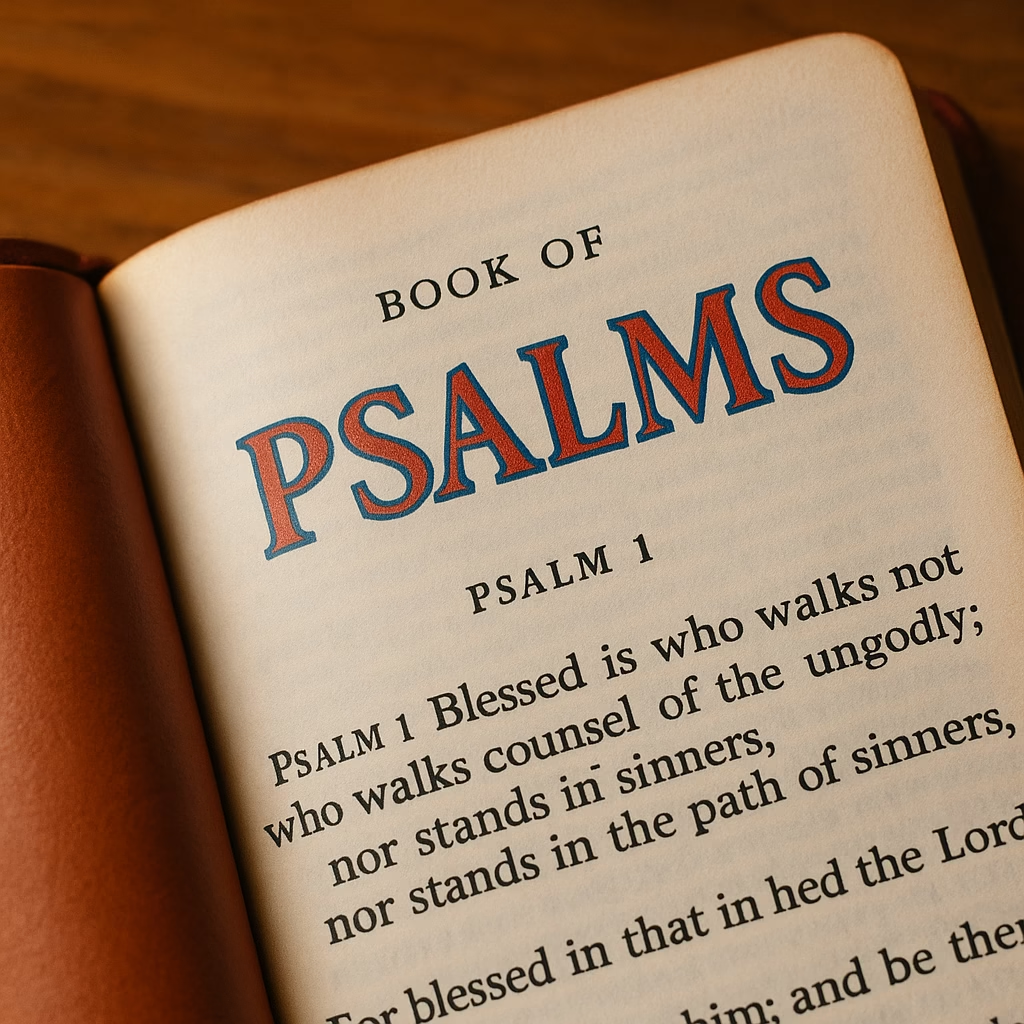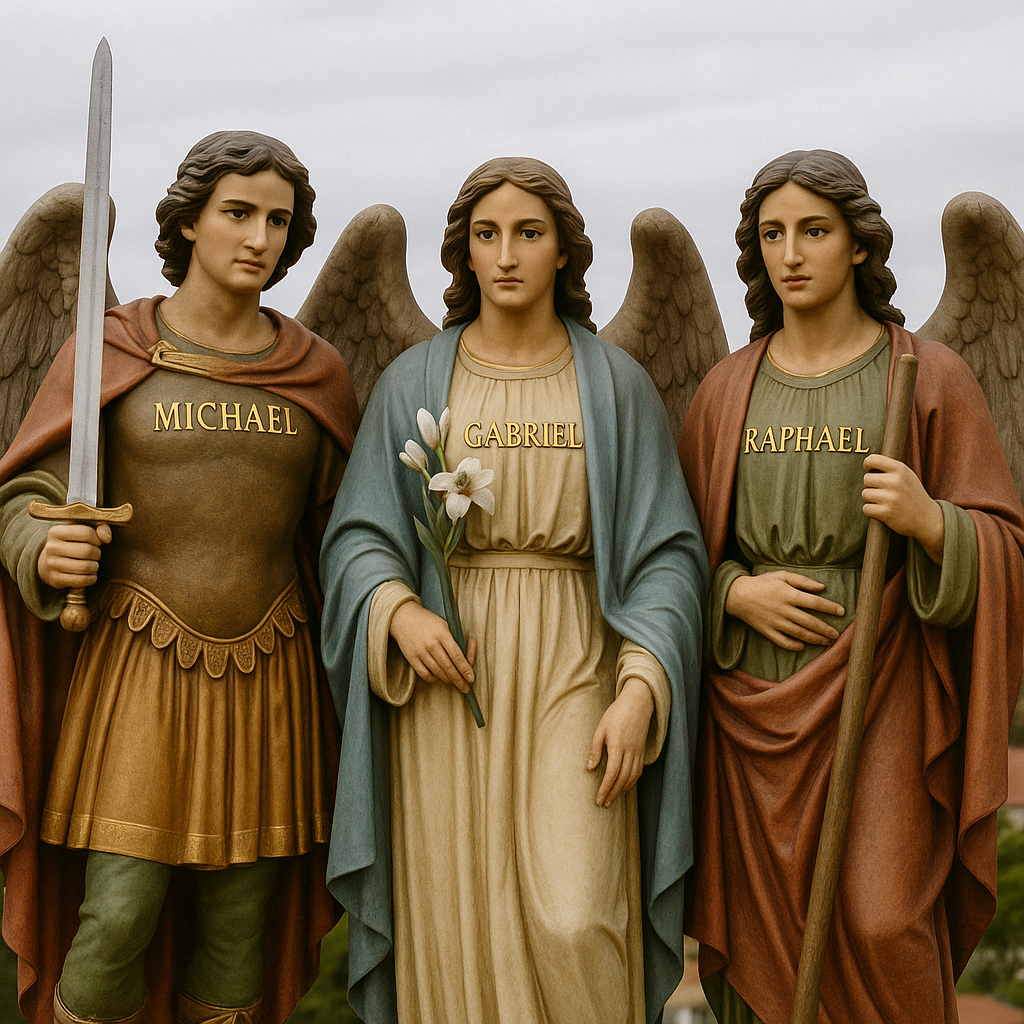Meaning, Structure & Spiritual Power Explained
The Book of Psalms is one of the most beloved and widely read books in the entire Bible. It’s a collection of 150 poetic songs and prayers that express the deepest human emotions – joy, sorrow, gratitude, fear, and faith. Written over centuries, the Psalms still speak powerfully to our hearts today.
But what exactly is the Book of Psalms? Who wrote it, and why does it matter for your faith journey?
Let’s explore the meaning, structure, and spiritual significance of Psalms, and why it continues to transform lives.
What Is the Book of Psalms?
The Book of Psalms (Hebrew: Tehillim, meaning “praises”) is a collection of sacred songs, poems, and prayers found in the Old Testament. It served as the prayer book and hymnbook for ancient Israel and remains central in Christian worship today.
The Psalms express every emotion imaginable – praise, thanksgiving, lament, repentance, and trust. Whether you’re on a mountaintop or in a valley, there’s a Psalm that gives voice to your soul.
Who Wrote the Psalms?
The Psalms were written by multiple authors over several centuries. Here’s a breakdown:
- King David – Credited with writing at least 73 Psalms. Known as the “sweet psalmist of Israel.”
- Asaph – A temple musician and worship leader (Psalms 50, 73–83).
- Sons of Korah – Levitical musicians (Psalms 42–49, 84–88).
- Solomon – Wrote Psalms 72 and 127.
- Moses – Author of Psalm 90, the oldest Psalm.
- Anonymous – Nearly a third of the Psalms have no named author.
These inspired writers captured both the personal and communal cries of God’s people, creating a timeless spiritual songbook.
How Is the Book of Psalms Structured?
The Book of Psalms is divided into five sections, mirroring the five books of the Torah (Genesis–Deuteronomy):
- Book I – Psalms 1–41 (mostly Davidic, focusing on God’s faithfulness)
- Book II – Psalms 42–72 (laments and royal psalms)
- Book III – Psalms 73–89 (themes of national crisis and restoration)
- Book IV – Psalms 90–106 (God’s sovereignty and power)
- Book V – Psalms 107–150 (praise, thanksgiving, and hope)
Each section ends with a doxology, a short hymn of praise to God.
Why the Psalms Matter Today
The Psalms are more than ancient poetry – they’re a blueprint for our spiritual life. Here’s why they’re still so relevant:
✔ They Teach Us to Pray Honestly
Whether joyful or broken, the Psalms give us permission to come to God as we are, raw, real, and reverent.
✔ They Strengthen Our Faith
The Psalms constantly point us back to God’s faithfulness, justice, mercy, and love.
✔ They Help Us Worship
Many Psalms were written for corporate worship, and continue to shape music and liturgy in churches today.
✔ They Offer Hope in Hard Times
In moments of sorrow or fear, Psalms like Psalm 23, 46, 91, and 121 offer peace and reassurance.
✔ They Reveal Jesus
Jesus quoted the Psalms more than any other Old Testament book. Many Psalms prophetically point to the Messiah, such as Psalm 22 and Psalm 110.
Key Psalms to Know
Here are a few must-read Psalms and what they teach:
- Psalm 1 – The path of the righteous vs. the wicked
- Psalm 23 – The Lord is our Shepherd
- Psalm 27 – Confidence in God
- Psalm 46 – God is our refuge and strength
- Psalm 51 – A prayer of repentance
- Psalm 91 – God’s protection
- Psalm 139 – God’s intimate knowledge of us
- Psalm 150 – Let everything that has breath praise the Lord!
How to Use the Psalms in Daily Life
- Pray them aloud – let them become your own words to God.
- Sing or chant them – they were written as songs for a reason.
- Memorize them – start with short Psalms like Psalm 100 or Psalm 121.
- Use them for journaling or reflection – ask: “What does this Psalm reveal about God? About me?”
Psalms Help Us Trust God’s Plan
The Book of Psalms invites us into a personal and powerful relationship with God. Through every trial, every celebration, and every season, the Psalms show us that we can trust God’s plan, even when life feels uncertain.
As you explore this sacred book, may the words of the Psalms become your own – your prayers, your songs, your strength.
“Blessed is the one who does not walk in step with the wicked… but whose delight is in the law of the Lord.” – Psalm 1:1–2






